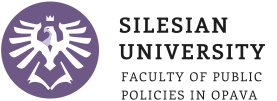Central European Papers, 2025 (vol. 13), issue 1
Editorial
EDITORIAL
Editorial Team of C.E.P.
Central European Papers 2025, 13(1):7 
Articles
CREATING A BUSINESS PLAN FOR A VIRTUAL HOTEL AS A MEANS OF MODERN LEARNING
Pavlína Pellešová, Klára Václavínková
Central European Papers 2025, 13(1):11-22 | DOI: 10.25142/cep.2025.001 
The aim of the paper is to give an example of the implementation of a modern teaching trend in the teaching of tourism subjects. The paper describes the application of teamwork with students on the joint creation of a virtual hotel business plan. The main method of the work is the theoretical inductive principle and the result is a comprehensive hotel business plan and an innovative form of teaching.
POVÁLEČNÁ RETRIBUCE V ČESKÝCH ZEMÍCH V HISTORICKÉ A PRÁVNĚHISTORICKÉ LITERATUŘE: KOMENTOVANÁ BIBLIOGRAFIE
POST-WAR RETRIBUTION IN THE CZECH LANDS IN HISTORICAL AND LEGAL-HISTORICAL LITERATURE: AN ANNOTATED BIBLIOGRAPHY
Jaroslav Král
Central European Papers 2025, 13(1):23-43 | DOI: 10.25142/cep.2025.002 
The desire for retribution and punishment of those responsible for the significant suffering endured by the inhabitants of the Czech lands during World War II led the Czechoslovak political representatives in exile, both in London and Moscow, to the idea of dealing with these “traitors and collaborators” once and for all, ensuring a swift purification of the nation in the early post-war years. To achieve this goal, specific institutions were established in the form of 24 extraordinary people’s courts, the National Court, and criminal investigation commissions, which were to fulfill this ambitious aim. Research and evaluation of their...
BORDERS AND BORDER REGIONS IN A CHANGING GEOPOLITICAL ORDER: TERRITORIAL NARRATIVES OF EUROPE’S MARGINS FROM AN EXTERNAL PERSPECTIVE
Tomasz Brańka, Łukasz Donaj, Jarosław Jańczak, Marcin Wochelski
Central European Papers 2025, 13(1):45-65 | DOI: 10.25142/cep.2025.003 
This article explores how two global powers narrate and politicize the territorial margins of Europe – Ukraine and Greenland – by analyzing official presidential rhetoric from the United States and the Russian Federation between 2019 and 2025. Adopting a qualitative, discourse-analytic methodology, the study treats public speeches as performative acts of statecraft that shape geopolitical perception and legitimacy. Focusing on the cases of Ukraine, a contested post-Soviet buffer zone, and Greenland, an autonomous Arctic territory, the analysis uncovers distinct yet parallel rhetorical strategies. Russia, through President Putin, constructs...


